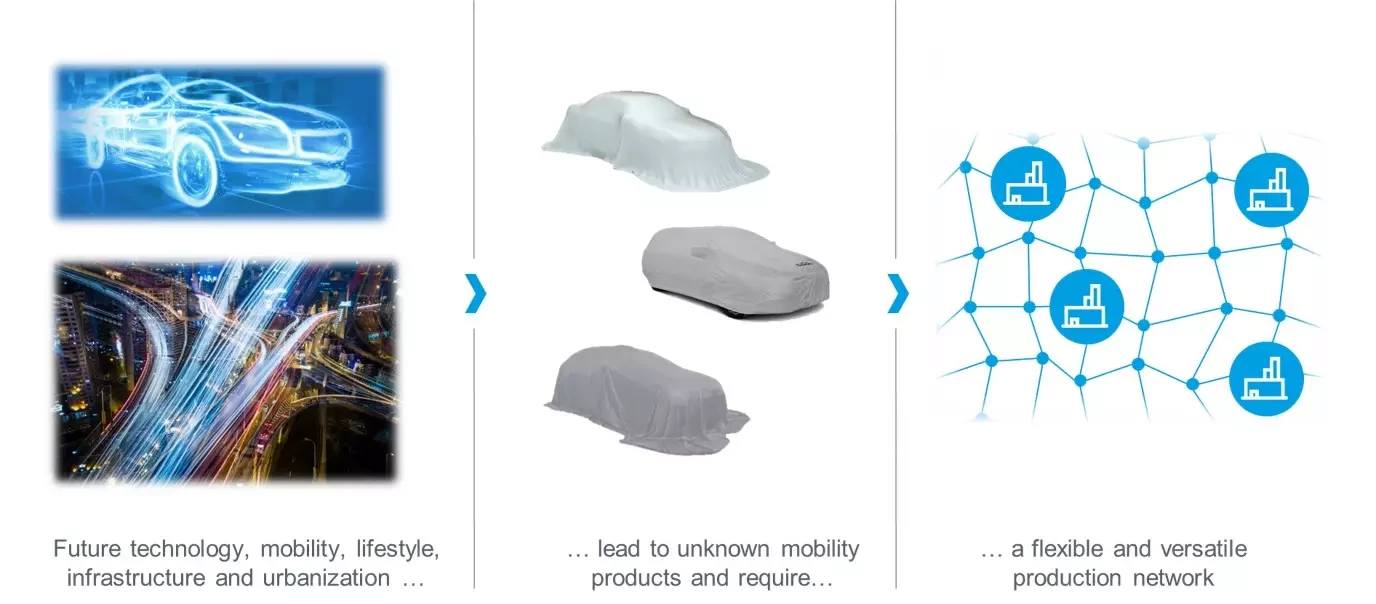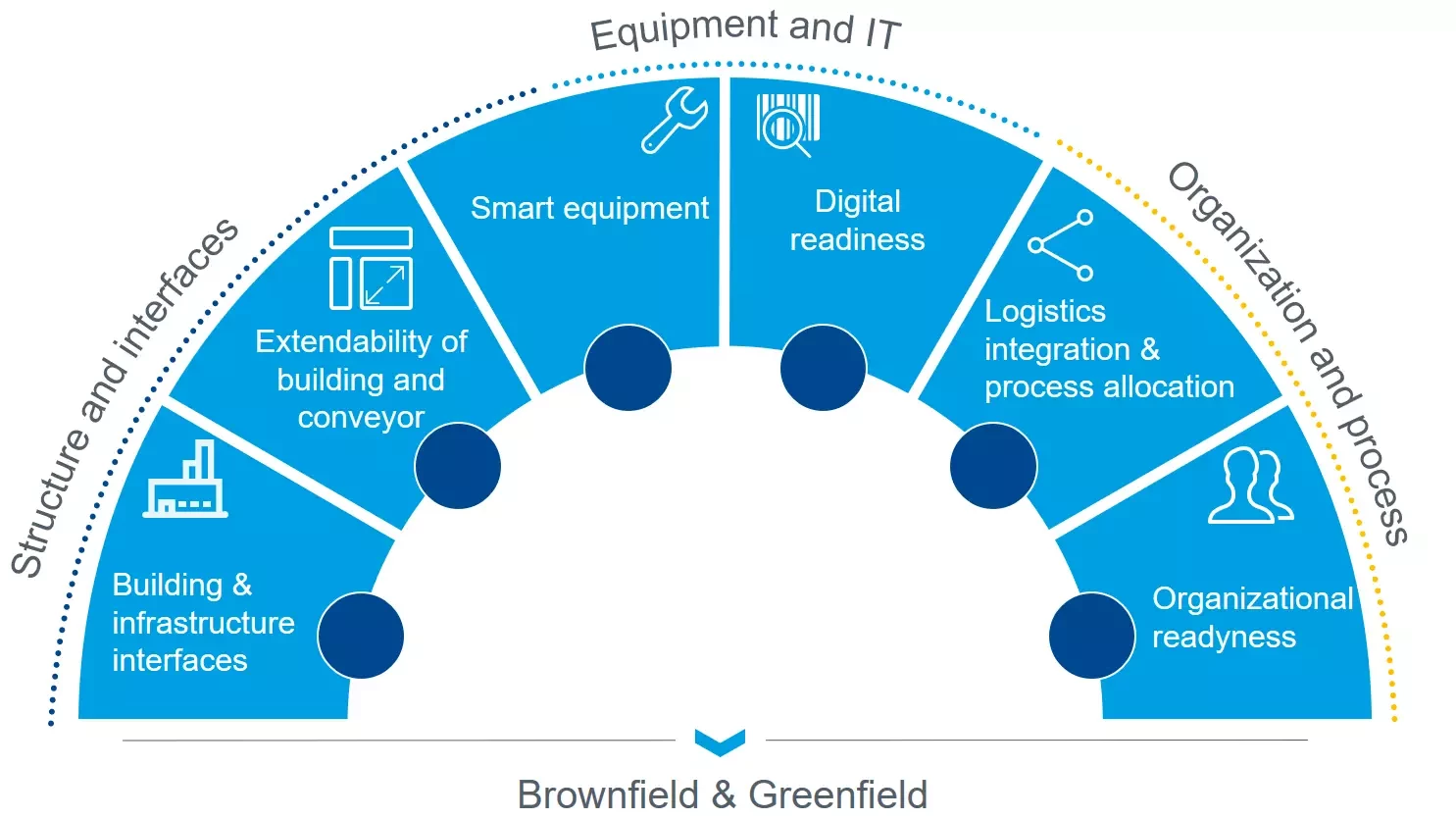“Always one step ahead” – in today’s agile world, this the key to having a decisive competitive edge in the future. In the context of current challenges in the manufacturing environment, driven by electric mobility, changing customer behavior, digitalization, and globalization, Andreas Hohmann reported on the key success factors in future car production.
Factories are being redefined
Plant managers are facing the challenge of new criteria for creating the factory of the future. In addition to the increasingly tightening manufacturing times (HPVs), other variables moving ever further to the fore are greater variant complexity, a global manufacturing network, shorter ramp-up times to the start of production, and the energy self-sufficient factory. This results in new “enabling technologies”, such as digitalization. “The factory of the future must be transparent, scalable, and flexible. The only way to achieve this in the future will be through the use of digital solutions and technologies on the shop floor,” stated Hohmann during his talk at the Automotive Engineering Expo.
Digitalization is the key
Adapting car assembly to changing requirements in the future will require innovative solutions that model the processes and workflows on the shop floor centrally and digitally. “Manufacturing Execution Systems (MES for short) were just the first step here in ensuring transparency in the factory of the future in the long term and in serving as the basis for new digital applications,” pointed out Andreas Hohmann in his presentation with subsequent discussion. It is a matter of moving away from the traditional IT architecture and rethinking the networking of machines and systems. Decentralized modules in the cloud are the next step in adding flexibility to car assembly.
Autonomous driving may bring changes
“Autonomous driving is inevitable – it’s just a question of when!” That will also change today’s assembly concepts. Will the car drive itself through the assembly line as soon as the wheels are fitted? Will the vehicle pass through the end-of-line area to its parking position autonomously? “These are complex questions we should already be thinking about today,” said Hohmann. “We have the opportunity now to make Germany attractive again as a location, so we should do that.”



